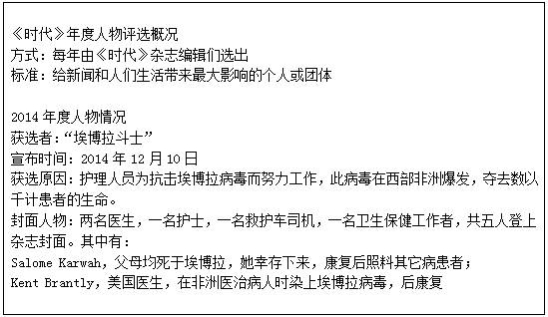题目内容
— Did you stay at the party until the very end last night?
— No,I left as early as was ________ with politeness.
A. content B. consistent
C. patient D. Permanent
 智能训练练测考系列答案
智能训练练测考系列答案Simon Sinek is naturally shy and doesn’t like speaking to crowds.At parties,he says he hides alone in the corner or doesn’t even show up in the first place.He prefers the latter.Yet,with some 22 million video views under his belt,the optimistic ethnographer also happens to be the third most-watched TED Talks presenter of all time.
Sinek’s unlikely success as both an inspirational speaker and a bestselling author isn’t just dumb luck.It’s the result of fears faced and erased,trial and error and tireless practice,on and off stage.Here are his secrets for delivering speeches that inspire,inform and entertain.
Don’t talk right away.
Sinek says you should never talk as you walk out on stage.“A lot of people start talking right away,and it’s out of nerves,” Sinek says.“That communicates a little bit of insecurity and fear.”
Instead,quietly walk out on stage.Then take a deep breath,find your place,wait a few seconds and begin.“I know it sounds long and tedious and it feels excruciatingly awkward when you do it,” Sinek says,“but it shows the audience you’re totally confident and in charge of the situation.”
Show up to give,not to take.
Often people give presentations to sell products or ideas,to get people to follow them on social media,buy their books or even just to like them.Sinek calls these kinds of speakers “takers,” and he says audiences can see through these people right away.And,when they do,they disengage.
“We are highly social animals,” says Sinek.“Even at a distance on stage,we can tell if you’re a giver or a taker,and people are more likely to trust a giver — a speaker that gives them value,that teaches them something new,that inspires them — than a taker.”
Speak unusually slowly.
When you get nervous,it’s not just your heart beat that quickens.Your words also tend to speed up.Luckily Sinek says audiences are more patient and forgiving than we know.
“They want you to succeed up there,but the more you rush,the more you turn them off,” he says.“If you just go quiet for a moment and take a long,deep breath,they’ll wait for you.It’s kind of amazing.”
Turn nervousness into excitement.
Sinek learned this trick from watching the Olympics.A few years ago he noticed that reporters interviewing Olympic athletes before and after competing were all asking the same question.“Were you nervous?” And all of the athletes gave the same answer: “No,I was excited. ” These competitors were taking the body’s signs of nervousness—clammy hands,pounding heart and tense nerves—and reinterpreting them as side effects of excitement and exhilaration.
When you’re up on stage you will likely go through the same thing.That’s when Sinek says you should say to yourself out loud,“I’m not nervous,I’m excited!”
Say thank you when you’re done.
Applause is a gift,and when you receive a gift,it’s only right to express how grateful you are for it.This is why Sinek always closes out his presentations with these two simple yet powerful words: thank you.
“They gave you their time,and they’re giving you their applause.” Says Sinek.“That’s a gift,and you have to be grateful.”
Passage outline | Supporting details |
1.to Simon Sinek | He is by 2.shy and dislikes making speeches in public。 Through his3.effort,he enjoys great success in giving speeches。 |
Tips on delivering speeches | Avoid talking 4.for it indicates you’s nervous. Keep calm and wait a few seconds before talking,which will create an 5.that you are confident. |
Try to be a giver rather than a taker because in 6.with a taker, a giver can get more popular and accepted. Teach audience something new that they can 7.from. | |
Speak a bit slowly just to help you stay calm. Never speed up while speaking in case you 8.the audience. | |
Switch nervousness to excitement by 9.the example of Olympic athletes. | |
Express your 10.to the audience for their time and applause to conclude yout speech. |


